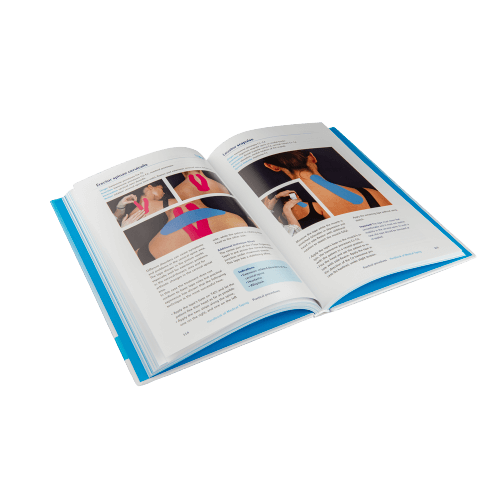Relieve Lower Back Pain with Kinesiology Tape
The kinesiology tape applications on this page can help relieve lower back pain by reducing tension in the fascia.
Lower Back Pain
Back pain is the most common reason clients visit a therapist, often targeting the lower back. This pain can also radiate to the buttocks or thighs. If the pain extends down the back of the thigh, it might be nerve pain caused by a bulging or herniated disk. For about 90% of people with lower back pain, the exact cause is unknown. Constant strain on the lumbar spine can lead to tightness and pain in the fascial structures.
Get started with these items to tape lower back pain
-
CureTape® Classic Kinesiology Tape
Bestseller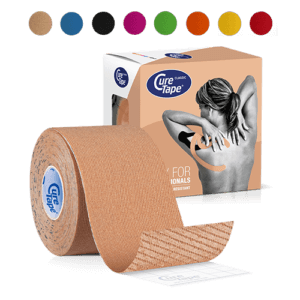 $19.95
In stockSelect options This product has multiple variants. The options may be chosen on the product page
$19.95
In stockSelect options This product has multiple variants. The options may be chosen on the product page -
CureTape® Sports Extra Sticky Kinesiology Tape
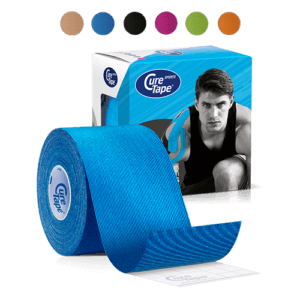 $21.95
In stockSelect options This product has multiple variants. The options may be chosen on the product page
$21.95
In stockSelect options This product has multiple variants. The options may be chosen on the product page -
CureTape® Art Printed Kinesiology Tape
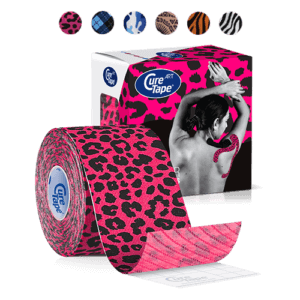 $21.95
In stockSelect options This product has multiple variants. The options may be chosen on the product page
$21.95
In stockSelect options This product has multiple variants. The options may be chosen on the product page -
Standard scissors
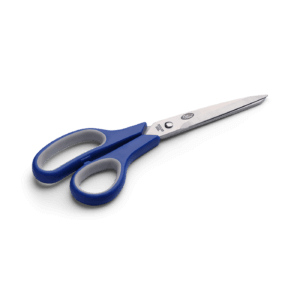 $14.95
In stockAdd to cart
$14.95
In stockAdd to cart
Tape application
- Cut 3 three horizontal I-strips, in 3 different lengths
- Place the distal strip (the smallest and lowest) first
- Then build up towards the proximal (upwards).
- The tape is applied with stretch
When you apply the kinesiology tape as shown in the instruction video below, it stimulates natural movement, which is essential for recovery.
Video how to tape for lower back pain

Christina’s advice when taping your back
When taping your back, it’s crucial to choose a tape that provides strong adhesion and support. That’s why I recommend CureTape kinesiology tape. Because tape is applied on the back, it may come off sooner due to sweat or friction. Therefore, opt for our extra sticky CureTape Sports tape variant!
How to tape a relaxing tape for lower back pain
The dorsal trunk muscles, specifically the M. quadratus lumborum (a muscle located in the lower back), often cause lower back pain due to increased tension. We recommend the kinesiology taping/strapping application below to reduce tension in these muscles. This helps stimulate natural posture and movement, thereby speeding up the recovery process.
Taping Instructions:
- Cut two 30 cm strips of CureTape.
- Lay the base of the tape strip in a neutral position, laterally to the SIPS (Superior Iliac Posterior Spine, the bony protrusion you can feel at the back of your pelvis). If you are applying the tape to yourself, bend forward and have someone help you apply the tape to your back.
- Place the strips with 10 to 15 percent stretch. Allow the client or yourself to return to a neutral position and fix the anchors (the ends of the tape that should not be stretched).
- Have the client bend over again and rub the tape to warm up the adhesive for optimal adhesion.
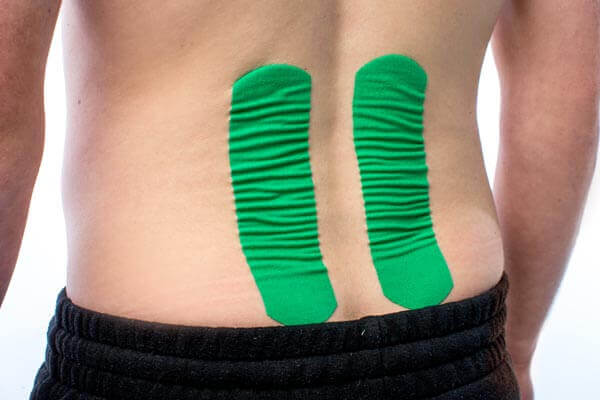
How to tape for extension complaints of the lower back
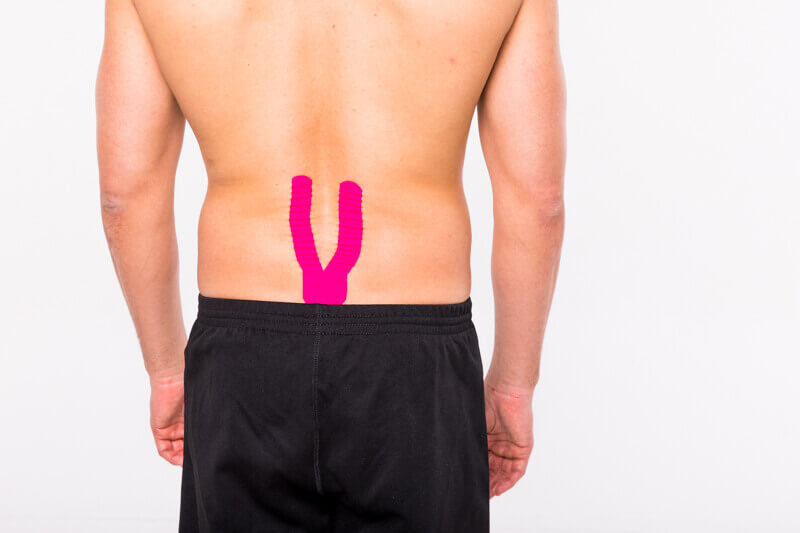
Taping Instructions for Lower Back Extension Complaints:
For extension complaints of the lower back, taping the erector spinae and lumbar extensors is recommended. When the tape is applied as indicated below, it stimulates natural movement, which is important for the recovery process.
Strapping Application:
- Cut a Y-tape or use two I-strips of approximately 25 cm.
- Place the base of the tape on the sacrum in a neutral position. Have the client lean forward as far as possible. If you are applying the tape to yourself, bend forward and have someone help you apply the tape to your back.
- Apply the kinesiology tape next to the spine with 10 to 15% stretch.
- Rub the tape to warm it for optimal adhesion, then allow the client or yourself to return to the neutral position.
Learn how to tape
Want to learn how to apply tape yourself*? Check out our manuals on taping:
- The Ultimate Taping Guide: Focuses on self-taping for the 30 most common injuries where taping provides support.
- Kinesiology Taping Method Manual: Designed for (para medical) professionals, covering basic taping techniques and various pathologies.
- Decompressive Taping Techniques Manual: Specifically focuses on lymphatic taping methods for decompression.
What are you waiting for? Order a copy today!
THYSOL is the manufacturer of the kinesiology tape brand CureTape. As CureTape, we have been training and supplying professionals for 25 years. And consumers now know how to find us too! By manufacturing all our tapes in our own factory, we can guarantee the best quality!
Please note that the indicated tape applications and information on our website about the possibilities with kinesiology tape have not yet been scientifically proven. The statements and examples mentioned are based on long-term experiences of patients and trained therapists.Contraindications not to tape: pregnancy, open wounds, broken bones, unexplained complaints, allergies and skin diseases, use of medication such as blood thinners, thrombosis and fever. Always apply tape in consultation with a specialist.

